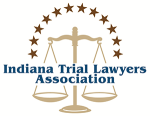
The goal of a personal injury lawsuit is to make a victim “whole” – or as close as possible – if he or she suffers injury due to another person’s intentional, reckless or simply careless actions. That is why victims often file personal injury claims against employers when their employees harm others. An employer typically has more financial resources than an employee, or “deeper pockets.” So, the employer will be in a better position than an employee to make the victim whole. Additionally, an employer reaps the benefits of an employee’s good acts. It follows that the employer should be responsible for the employee’s bad acts.
However, establishing an employer’s liability in Indiana can be a complex undertaking. Here, we provide an overview of different options and challenges that may arise in the process. If you seek to hold an employer legally responsible for an injury that an employee caused you to suffer in Fort Wayne, Huntington or elsewhere in northeast Indiana, you should discuss the specific facts of your case with an experienced personal injury lawyer at Truitt Law Offices.
Table of Contents
What About Workers’ Compensation Benefits?
If a co-worker hurt you on the job, then you could file a claim for workers’ compensation benefits. This is not a personal injury claim. Instead, it is a claim for benefits such as coverage of all of your injury-related medical expenses and/or replacement of wages that you lose due to a disability.
Workers’ compensation provides your “exclusive remedy” against your employer. However, that rule applies only if the co-worker was acting within the course and scope of the worker’s employment. If the co-worker acted outside of that scope – for instance, the worker sexually harassed or assaulted you – then you likely cannot file a workers’ compensation claim against the employer. However, you may pursue other options to hold the employer accountable.
What Is Vicarious Liability?
Under the legal doctrine of respondeat superior – “let the master answer” – an employer can be held liable for the acts of its employees. However, this doctrine applies only if the worker is acting within the course and scope of his or her employment. So, if a worker was carrying out a job duty and caused an injury – for example, a truck driver caused a crash while making a delivery – the employer could be held liable for the worker’s negligence.
However, if a worker acted outside the scope of employment – for instance, the worker committed a criminal act such as a rape or sexual assault – the employer may not be liable under this theory unless the employer knew about the employee’s wrongful conduct and failed to take adequate steps to address it. In other words, to sue the employer, you would need to show that the employer “ratified” the employee’s actions.
What Are Negligent Hiring and Negligent Retention?
In some circumstances, an employer can be liable for its own misconduct when an employee harms another person. The liability would be based on the idea that, by hiring and/or retaining a dangerous employee, the employer exposed others to harm.
Under a negligent hiring theory, an employer could be liable for hiring someone without conducting an adequate background check or for hiring the person despite “red flags” in his or her background. For instance, an employer could be liable for hiring a delivery worker with a history of drunk driving arrests who, in turn, causes a car accident due to his or her intoxication. Or, in another scenario, a nursing home could potentially face a lawsuit if it hired a worker with prior convictions for violent crimes and/or sexual assault who, in turn, assaults one of the home’s residents.
Under a negligent retention (or supervision) theory, an employer could be liable if the evidence shows that the employer knew or should have known that an employee was acting in a dangerous manner but, nonetheless, allowed the employee to continue working without adequate training or supervision. For example, an employer may have known that a worker had engaged in sexual misconduct in the workplace – maybe even in violation of the employer’s own written policy – but failed to remedy the situation.
What is Civil Rights Liability?
An employer may also face liability for engaging in – or at least permitting – harassment or discrimination in the workplace by its employees. This is a type of civil rights claim. However, before you can file a workplace harassment or discrimination lawsuit in court against your employer, you must go through a series of administrative steps such as filing a complaint with the Indiana Civil Rights Commission.
If the employer is a school that receives federal funding, a Title IX civil lawsuit may also be an option if one of the school’s employees sexually harasses or sexually assaults you, and you are a student, former student or parents of a student. Title IX is a federal civil rights law. It requires schools to provide students with an equal opportunity to receive an education, regardless of their gender, and it mandates providing an atmosphere that is free from sexual discrimination or harassment. In a Title IX claim, you would need to show that the school knew or should have known about sexual misconduct by an employee and failed to investigate or otherwise handle it properly.
Get Help from an Indiana Employer Liability Attorney Today
As you can see, an employer may be held legally responsible for the conduct of its employees in many different situations and under many different legal theories. However, these cases can present several issues that you must identify and overcome. If you seek to hold an employer liable for the harm that an employee has caused you or a loved one to suffer, you should get help as early as possible from a lawyer with experience handling employer liability cases in Indiana. At Truitt Law Offices, we can bring more than 40 years of experience to your case, including numerous cases in which employers were held accountable for the wrongful acts of their workers. To learn more about how we can help you, call or reach us online today through our offices in Fort Wayne and Huntington.








